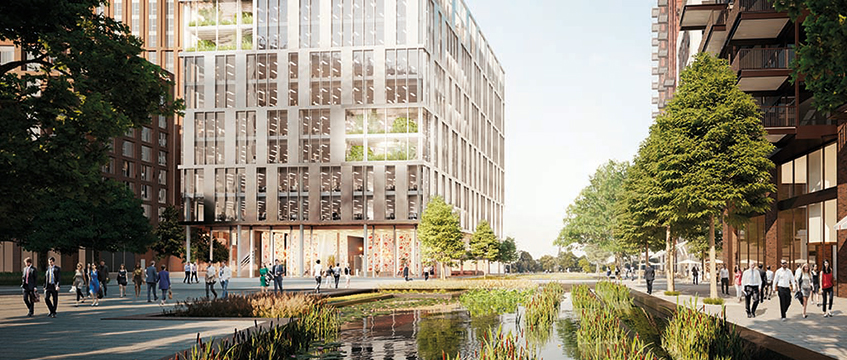The South East office market is experiencing a tailing off in activity as Brexit uncertainty bites, according to local agents.
The concerns come after a bumper lettings market in 2018, when take-up hit just over 4m sq ft, the highest level recorded since 2008, according to Knight Frank. Overall, take-up was up 35% compared with 2017 and was 29% above the 10-year average. The largest deals were Publicis at White City (211,000 sq ft), ASOS at Leavesden (125,000 sq ft) and Virgin at Green Park, Reading (121,350 sq ft).
In contrast, investment levels fell in the region, dropping 25% year on year to £2.7bn but still 16% above the 10-year average. UK councils dominated the market, representing 32% of all deals by volume, up 15% from 2017. The largest transaction of the year was Spelthorne Borough Council’s purchase of the Brockton South East office portfolio for £335m.
Emma Goodford, head of the national offices team at Knight Frank, commented: “2018 was a decent year considering a lot of people felt the imminence of Brexit would lead to a softening of occupier activity at the end of the year.
“But we’ve had to be a bit more conservative about what happens in the next 12 months. There is a visible slowdown in activity evident in response to the stalemate on Brexit in the wider South East. Those companies who were out there to do transactions have done them and we’ve seen the number of enquiries slowing down.”
The political uncertainty is also limiting new building starts in an already undersupplied market.
Ryan Dean, national head of office advisory at Lambert Smith Hampton, said: “Almost every market in the South East will experience tight supply of good quality space by the end of 2019. There is a lack of speculative development. Take-up has been robust but there has been little replenishment of supply in the market.”
He added that there is also a lack of investment in the market. “This is due to some of the cost risks associated with the region. Rents remain relatively low – roughly £30-£40 per sq ft on average. As a result, the viability of building is challenging but supply constraints will lead to rental growth. With the political uncertainty, new starts are also likely to be few and far between this year.”
The market has already seen a lot of its office supply converted to alternative uses. David Cuthbert, partner and co-founder of Hanover Green, commented: “We have lost a lot of office stock as a lot has been converted to residential. If a building is worth more as an office, it will stay as an office but often a developer can convert it to residential to make twice as much.”
A final question mark for the market is whether Brexit, when and indeed, if, it happens, could result in pent up demand later in the year.
Cuthbert commented: “If Brexit is resolved by 29 March, there will likely be pent up demand as people are sitting on their hands unless they have to do something. This could give us a better situation.”
To send feedback, e-mail anna.ward@egi.co.uk or tweet @annaroxelana or @estatesgazette











